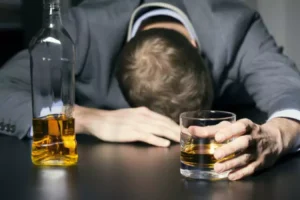
Their trained advisors are on hand between 9am and 2pm every weekday to give you confidential advice through an online chat service. Alcohol is known to affect several nerve-chemical systems which are important in regulating mood. Sometimes (although not always) there’s a trigger for depression.
Increases anxiety
This approach allows you to focus solely on your recovery without outside distractions. Moreover, you’ll have access to therapy, support groups, and medical care during your stay. Heavy alcohol use negatively impacts reasoning, memory, and overall brain function. The hippocampus, which aids in learning and stores memories, can be particularly vulnerable to alcohol. Alcohol makes your stomach produce extra acid, leading to inflammation of the stomach lining (gastritis).

Reduce anxiety
- There are a multitude of different treatment options available for those struggling with depression and an alcohol use disorder.
- In some people, the initial reaction may feel like an increase in energy.
- Thus, long-term psychiatric treatment does not appear to be required for alcohol-induced psychiatric conditions to be resolved (Brown and Schuckit 1988; Schuckit and Hesselbrock 1994).
- If not treated, alcohol use disorder can become a life-long struggle.
- Doctors may prescribe medication if they believe it would benefit your recovery.
And because alcohol drains the brain of both dopamine and gamma-aminobutyric acid (our “safety” neurotransmitter), we’re left with “little of our own, natural chemistry to create senses of pleasure or hopefulness,” Goodwin says. Alcohol is frequently used to numb https://ecosoberhouse.com/ uncomfortable emotions and can become a habitual pattern that disrupts the natural balance of neurotransmitters in the brain. Your primary care provider can refer you to a therapist, but you can also try directories, such as this one through Psychology Today.
- Our expert team of professionals provides compassionate care and effective treatment strategies to help you overcome addiction and manage depression healthily.
- It may temporarily suppress feelings of isolation, anxiety, or sadness, but that won’t last.
- Bipolar disorder and alcohol use disorder, or other types of substance misuse, can be a dangerous mix.
- Alcohol use disorder and depression are two conditions that often occur together.
- You might start drinking in order to forget what’s on your mind, but once the initial boost begins to wear off, you might end up wallowing in those feelings instead.
- However, there is no evidence that moderate drinking will cause anxiety.
- Maybe you tossed and turned, had bizarre dreams, or woke up with your heart racing.
Relieving depression linked to drinking

However, rehydration can help you feel better physically and improve your overall well-being. With fewer hangover symptoms, you may also see an emotional improvement. It might feel difficult, but they will have heard alcohol and depression from many other people going through something similar and will want to help you. They can check your physical health and put you in touch with local support, such as local NHS alcohol addiction support services.
If you’re ready to start your recovery, we’re here to help.
Failure to treat both conditions concurrently often leads to ineffective treatment outcomes, as untreated depression can drive continued alcohol abuse and vice versa. This disruption in brain chemistry is a primary reason why alcohol can worsen depression and contribute to a cycle of dependence and emotional dysregulation. This leads to decreased pleasure in everyday activities and increased depressive symptoms when not drinking. Don’t stop taking an antidepressant or other medication just so that you can drink. Most antidepressants require taking a consistent, daily dose to maintain a constant level in your system and work as intended. Stopping and starting your medications can make your depression worse.

Getting help if you’re worried about your drinking

